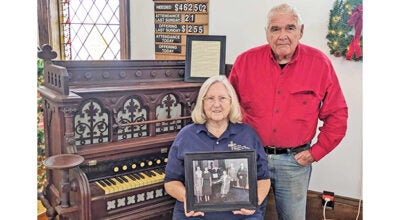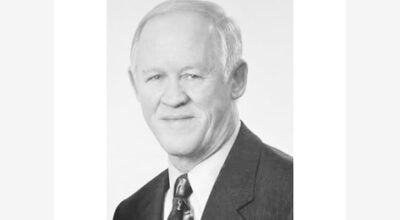Cass Family Clinic going electronic
Published 8:17 pm Wednesday, May 30, 2012
Although the Cassopolis Family Clinic is no longer owned and operated by Lakeland Healthcare, it is partnering with Lakeland to implement an electronic health record for its patients.
ConnectCare, an Epic software program used by Lakeland and many Lakeland physicians, will connect CFC’s clinics in Cassopolis and Niles with Lakeland facilities.
“It makes sense for us,” said Mary Geegan Middleton, executive director, “since the Obstetricians and Gynecologists who work at our Niles office deliver nearly 500 babies each year at Lakeland Community Hospital in Niles. Having one record between the office and the hospital gives the physicians access to patients’ health information through one website.”
Physicians in Cass and Niles will have real time access to laboratory and diagnostic tests, as well as inpatient and outpatient services at Lakeland Hospitals. Likewise, hospitalists (physicians who specialize in hospital inpatient care only) caring for patients at Lakeland facilities will have access to patients’ clinic records.
“This will create continuity of care, and reduce unnecessary duplication of tests, which will reduce costs,” says Stephen Miller, medical director at CFC. “Ultimately, the reason for making the change from paper records to electronic health records is to put patients first. There are many reasons for implementing electronic records, but patient safety and improving the quality of care are two of the most important reasons.”
Records from other hospitals and facilities not on the Epic system will be scanned into patients’ records.
Staff at both sites are training and learning the new technology during the month of May.
Starting June 5, staff will have both the paper chart and electronic record for patient visits. After a short transition, CFC will rely solely on the electronic records, keeping the historical data in patient charts in storage for the required period of time.
It won’t be without challenges. During the initial implementation phase the number of appointments have been drastically reduced.
“We’ve cut back our schedules to allow more time per patient as we learn this new system. Walk-in patients will still be accepted, and we’ll see them as promptly as possible,” Miller said. “We appreciate our patients and thank them for their understanding and patience as we all learn this new technology.”
“It’s a major financial investment for us,” Middleton said. “By partnering with Lakeland Healthcare we were able to accomplish many of our goals for electronic health records and decrease our expected cost over time.
“We’ll invest nearly $300,000 in the next few years to make this transition. Much of that money has been spent locally for information technology (IT) hardware and support and licensing fees.”
Health care systems are under a federal mandate to reach a “meaningful use” of technology before 2015 or lose a percentage of their Medicaid and Medicare funding.





